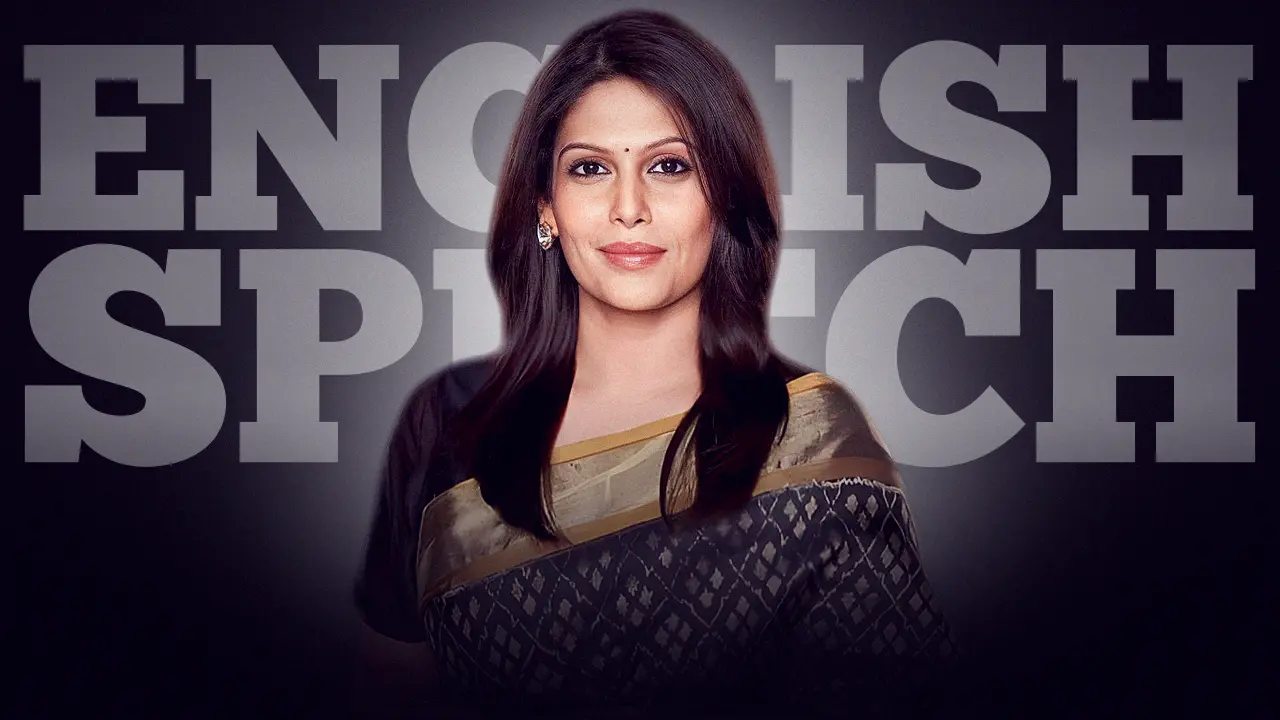Learn English with Daniel Radcliffe. Join us in exploring Daniel Radcliffe’s insightful perspectives on heroism, courage, and acting. From receiving the Trevor Hero Award to delving into challenging roles like an undercover FBI agent in “Imperium,” Radcliffe shares his journey beyond Harry Potter. Discover his thoughts on integrity, compassion, and the importance of acknowledging one’s fears and seeking help.
Donwload available for Premium Subscribers
PDF Full Transcript
Explore every word with our concise PDF transcripts.
Audio Version
Immerse in speeches with clear, downloadable audios.
English Lesson
Enhance English skills with interactive speech lessons.
⚬ Free 30-day trial

”Go boldly and honestly through the world.
Transcript
TREVOR HERO AWARD
Daniel Radcliffe: As an Englishman, a certain amount of natural reserve prevents me from being totally comfortable with the notion of being called a hero. I still can’t quite wrap my head around it. When I think of heroes, my schoolboy mind can’t help but take over and I think of everyone from my personal sporting heroes, English cricketers like Freddie Flintoff, to Alexander the Great, you know, leading his army to victory. Incidentally, considering that Alexander was bisexual, perhaps next year Trevor could honour him in some way, given that no one has actually done more for gays in the military.
However… sporting personalities aside, those kind of all-conquering, world-defining heroes are harder and harder to come by as the world gets bigger. Charismatic individuals who use eloquence and passion as opposed to fear and ignorance as the tools they use to shape events are often unable even to be heard above the din of media mediocrity and people-pleasing politicians. But the truth is that a hero is not always the person rallying the troops for battle or leading a march against oppression. A hero is also someone who, in their day-to-day interactions with the world, despite all the pain, uncertainty and doubt that can plague us, is resiliently and unashamedly themself. If you can wake up every day and be emotionally open and honest regardless of what you get back from the world, then you can be the hero of your own story. Each and every person who can say, despite life’s various buffeting, that they are proud to be the person they are, is a hero.
Now I do have to mention at this point the real heroes of the Trevor Project, the men and women volunteers, all of whom stand up day after day answering the calls of desperate teens whose circumstances have pushed them to the edge of the abyss. To take that call and say, “Yes, I will be the one who saves this life,” takes such courage and compassion. Hemingway’s definition of grace under pressure seems fitting as the job they do is every bit as important and every bit as delicate as a soldier defusing a bomb. As I said earlier, I think honesty is the most heroic quality one can aspire to, and in that spirit I would like to acknowledge that nothing is more heroic in life than being able to say to another human being, “I’m scared; I need help.” So every person that has had the strength to call the Trevor Project is also a hero, and I would encourage everyone everywhere who is in need of help to make that call. Help is there to be had, but inaction will not bring it closer to you. Speak up for yourself. Remember that yours is a life worth fighting for, and know that when you’re going through hell, keep going. Call the Trevor Lifeline. If you think a friend may need help, be a hero for them and give them the Trevor Lifeline number.
Anyway, I will repeat myself once more before I go. Go boldly and honestly through the world. Learn to love the fact that there is nobody else quite like you, and you will be, to plagiarise and paraphrase all at once, the heroes of your own lives. I thank the Trevor Project for this amazing award. Out of everything I have done, I can truly say the thing I am proudest of is my association with Trevor. It is an astounding organisation which saves lives every day, and I look forward to helping in any way that I can for the rest of my career. Thank you very much.
BROADWAY
Host: When did Broadway become an interest or a dream more than just a word for you?
Daniel Radcliffe: I mean, I suppose I’d never really considered it until it was after the first night of Equus in London, or you know, soon after that first night when people suddenly started throwing it around as like a possibility. And I’d never even considered that. I guess I hadn’t, you know, I’d just done my first play, so I wasn’t thinking, “Oh yeah, I’m sure we’ll take this to Broadway.” So, you know, so it was just the whole thing was just a kind of amazing, and I didn’t know what to expect from it either.
Host: Did you ever feel like you went to auditions or were seen by sort of film directors and got the sense that either they weren’t seeing you for you, they were seeing Harry, or even you might have lost out in a role because of a Harry hangover?
Daniel Radcliffe: Not particularly. I mean, I think doing Equus was a really big step, because, and I have been told that by directors that I’ve had meetings with, who I didn’t actually, you know, necessarily end up working with, but I had a conversation with somebody who did say to me, you know, doing Equus, even if people didn’t see it as a sort of statement of intent, people saw, “Oh, you want to do this?” The theatre I was taken to as a kid, I saw a lot of theatre and a lot of different films, and it was all very diverse and wide-ranging, and the actors that I’ve always admired are people who have like very varied bodies of work, and so I think that was always something that I wanted to do. It was just when I would get a chance to do it. All I needed was, you know, John Krakidas to think of me as Alan Ginsberg, or Thea Sharrock to see me as Alan in Equus, or Alex Aja to see me in Horns. Like, you only need people to, one person, to have the vision to give you the opportunity, and then hopefully, you know, make them, you know, reward them for giving you the opportunity.
“IMPERIUM” MOVIE
Host: As you were making the film, and especially as you’re creating these sort of shaded portraits of some of the members of this community, were you fearful that the film could be taken the wrong way, misconstrued?
Daniel Radcliffe: Not particularly, like, because if anyone asked me, I’d say, “No.” It’s very, like, you know, you know what I mean? I think what the film does is recognize that these people are human beings, and that, you know, in order for, you know, a lot of these films sort of tend to preach to the choir. Now, if there might be some white supremacists that go and see this movie and see it to hate watch it because they know that I’m Jewish, or whatever, you know, like, you know, they, and, but if any of them go in, and if even, like, you know, if one mind is changed because of that, that’s fantastic, and I think that this film maybe has a chance of doing that because it recognizes them as human beings first and foremost. Yes, they’re human beings with beliefs that are horrible to me, but they are still human beings, and we have to, like, maintain our belief that those, that a certain percentage of those minds can be changed, and I think that if you start off a conversation with somebody by saying, “You are less than me,” or, like, you know, “You are evil inherently,” then, of course, they’re never going to engage enough with you for you to actually change their mind. So, as, you know, as hard as it is, and as horrible and counterintuitive as it is, we will, you know, if you hope to change people’s minds, you can’t write off their humanity.
Host: You also had to take a kind of a risk for an actor in this film. You had to shave your head on screen.
Daniel Radcliffe: Yes.
Host: That must have been, what, a little bit terrifying.
Daniel Radcliffe: Yeah, it was a bit. It was just, just because, you know, I’ve never done it before, so I don’t know what my head looks like underneath my hair, and fortunately it was okay, and I think, you know, I did, I did most of it in the scene, and then we got Fernando, our hairdresser, to kind of tidy it up. Director: Yeah, exactly.
Daniel Radcliffe: But then, like, a few crew members came out in support and did it too, including our DOP, Bobby, who did, well, had, first of all, he shaved everything apart from, like, but he had really long hair before he shaved it, and then he just left this middle Mohican thing for a long time, and then eventually got rid of that as well. But yeah, it was, I actually, were it not for the… the ideological associations that that haircut has now for me, it’s, I really enjoyed having it, but I don’t think I’ll be going back to it all the time. Director: Only for Imperium 2.
Daniel Radcliffe: Yeah. What would that be?
Host: And, but you did also have to say a lot of really vile stuff, and kind of indulgence in vile behavior. Did you, as a person, as a performer, have to kind of psych yourself up to go to talk about, to talk that way?
Daniel Radcliffe: A little bit, yeah. I mean, it is horrible, it’s horrible. I mean, there was a, there was a scene I was doing with a, with a Hispanic actor who, I was going up to him after every take and being like, I’m so sorry, I’m so sorry. And it, and it is, because it’s not, it is not fun to say that stuff, even when you’re acting, like, it’s really, it’s really, it’s one of the few things that still just feels awful. And normally there’s, I find it very easy to separate, you know, what’s going on in the scene from life, you know, and it is, but it, with stuff like that, you just, the intensity of it is so real for, for both of you in that moment that you just have to, like, keep checking in and being like, hey man, I’m really sorry. But yeah, no, so it is, it does, it does definitely take an effect. And it’s, and it’s also why, like, making a film with Dan, who I get on with incredibly well, and, and, you know, and, and having that sort of relationship, and the crew were wonderful, and it’s, you know, you really need that on films like this, you know, it can’t, you can’t live at that level of intensity and bleakness all the time. You do need to be able to, like, step off set and, and just talk about something else and have a laugh about something completely separate from what you’re doing.






